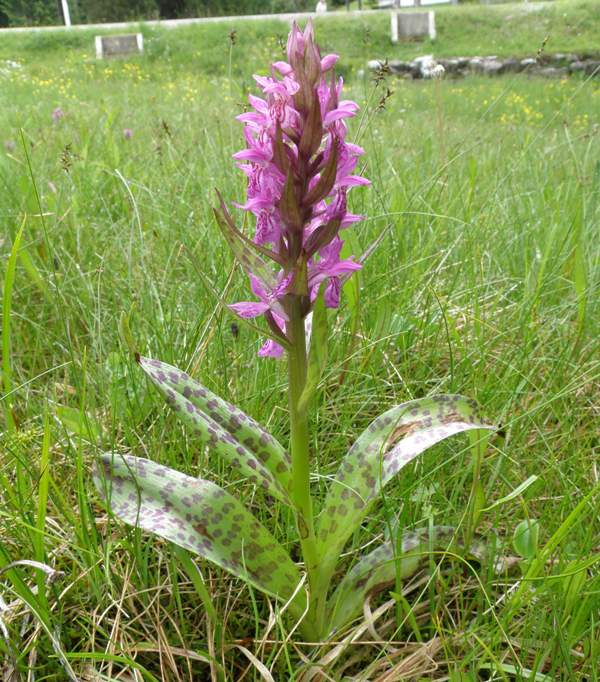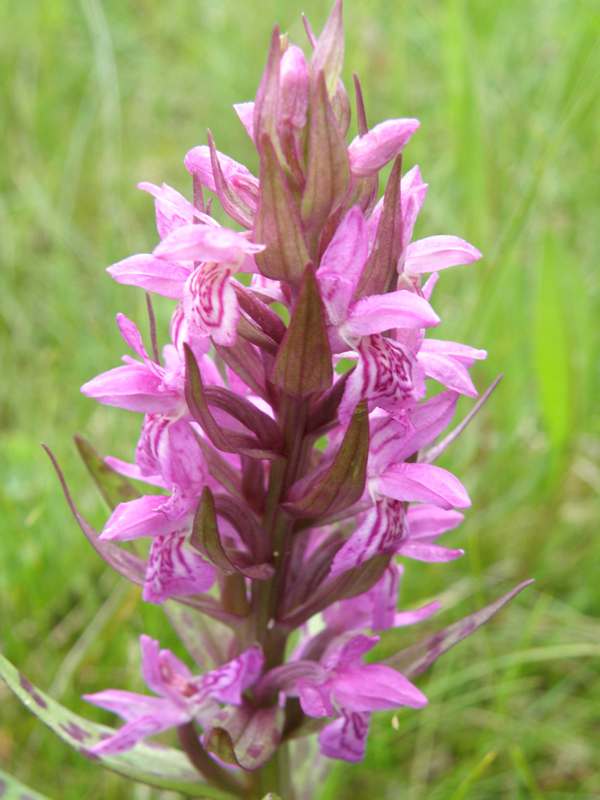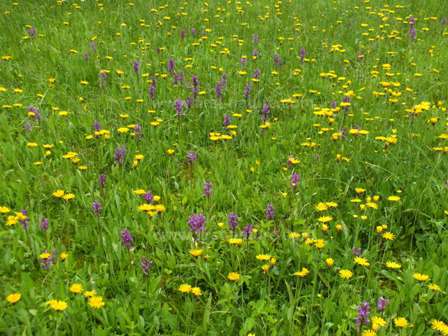Dactylorhiza majalis - Broad-leaved Marsh-orchid
Phylum: Magnoliophyta - Class: Liliopsida - Order: Orchidales - Family: Orchidaceae

The Broad-leaved Marsh-orchid (also known as the Western Marsh-orchid) is rather variable in many of its characteristics, and this makes accurate identification somewhat challenging. Its range is also problematic due to confusion with other closely related species.
Description
The Broad-leaved Marsh-orchid is a large and robust-looking plant that can grow typically 40 to 50cm in height, although taller plants (up to 70cm) have been found. It has four to ten leaves which are nearly always spotted with large, dark, brownish-purple marks.
Each infloresence carries up to 50 dark pink to purple flowers which are rather large. The dorsal sepals and petals form a hood over the convex lip, which is marked with deep purple loops and dots.

Distribution
The Broad-leaved Marsh-orchid can be found from southern Sweden as far south as Northern Spain and the Dolomites in Italy. In the UK and Ireland two subspecies are reported, one from Wales and the other from The Burren in County Clare, although both are very difficult to identify with confidence.
Habitat
Dactylorhiza majalis grows in marshy, unimproved meadows, which is where we found the specimens on this page in the Triglav National Park in Slovenia. The soil there is predominantly alkaline, but the other flowers we found close to these orchids indicated that the particular spot where we found the orchids was slightly more acidic than other parts of the park where there is a lot of exposed limestone. In the right habitat Dactylorhiza majalis forms impressively large colonies (see below), but the marshy unimproved meadows that it favours are in steep decline throughout its range.
Flowering times
Dactylorhiza majalis flowers from May until mid-July.

A very wet meadow in Slovenia full of Broad-leaved Marsh-orchids
Etymology
The genus name Dactylorhiza means 'finger-like roots', while the specific epithet majalis refers to the month of May.
Reference sources
The Plant List
Sue Parker (2023) Wild Orchids of Wales - how, when and where to find them; First Nature e-book (Amazon Kindle format)
Pierre Delforge (2005) Orchids of Europe, North Africa and the Middle East; A&C Black
Please Help Us: If you have found this information interesting and useful, please consider helping to keep First Nature online by making a small donation towards the web hosting and internet costs.
Any donations over and above the essential running costs will help support the conservation work of Plantlife, the Rivers Trust and charitable botanic gardens - as do author royalties and publisher proceeds from books by Pat and Sue.


